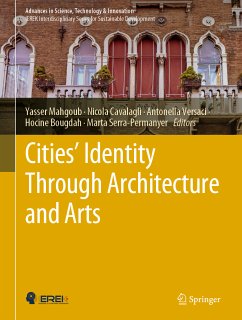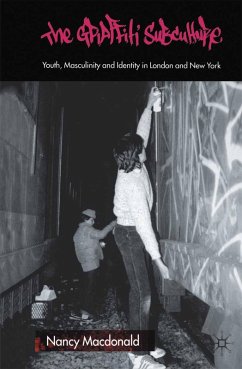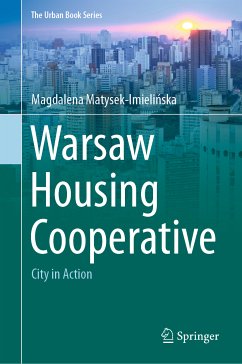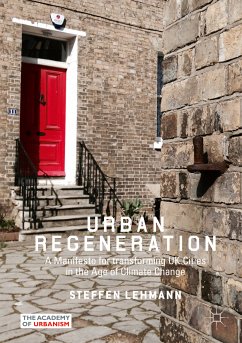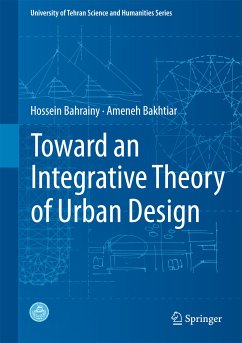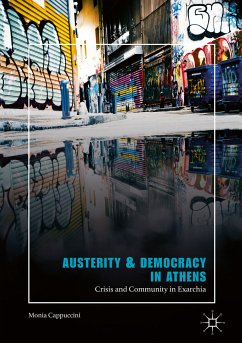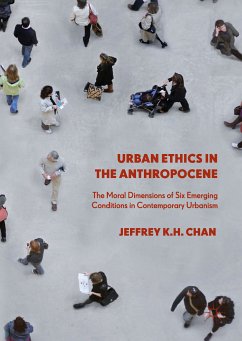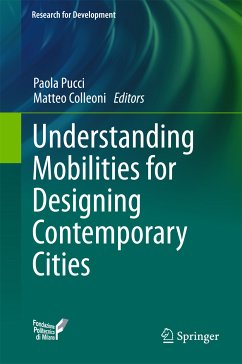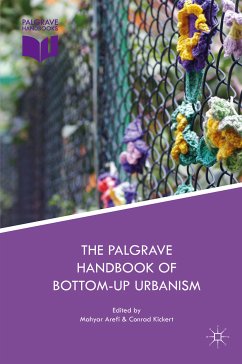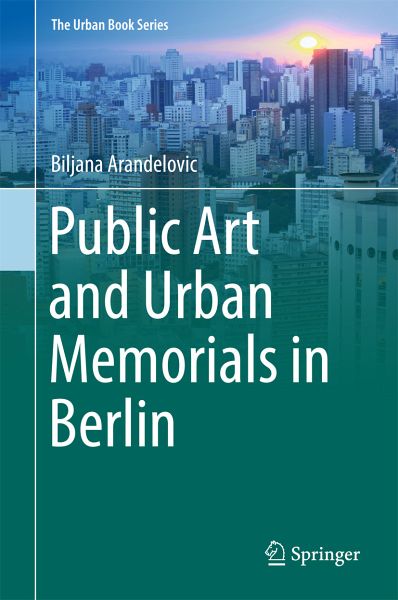
Public Art and Urban Memorials in Berlin (eBook, PDF)
Versandkostenfrei!
Sofort per Download lieferbar
72,95 €
inkl. MwSt.
Weitere Ausgaben:

PAYBACK Punkte
36 °P sammeln!
This book provides insight into the significant area of public art and memorials in Berlin. Through diverse selected examples, grouped according to their basic character and significance, the most important art projects produced in the period since World War II are presented and discussed. Both as a critical theoretical work and rich photo book, this volume is a unique selection of Berlin's diverse visual elements, contemporary and from the recent past. Some artworks are very famous and are already symbols of Berlin while others are less well known. Public Art and Urban Memorials in Berlin ana...
This book provides insight into the significant area of public art and memorials in Berlin. Through diverse selected examples, grouped according to their basic character and significance, the most important art projects produced in the period since World War II are presented and discussed. Both as a critical theoretical work and rich photo book, this volume is a unique selection of Berlin's diverse visual elements, contemporary and from the recent past. Some artworks are very famous and are already symbols of Berlin while others are less well known. Public Art and Urban Memorials in Berlin analyzes the connections created by public art on one hand, and urban space and architectural forms on the other.
This volume considers the Berlin works of iconic artists such as Christo and Jeanne-Claude, Daniel Libeskind, Dani Karavan, Bernar Venet, Keith Haring, Christian Boltanski, Richard Serra, Peter Eisenman, Henry Moore, Claes Oldenburg and Coosje van Brüggen, Wolf Vostell, Gerhard Richter, Eduardo Chillida, Jonathan Borofsky, Olaf Metzel, Sol LeWitt, Frank Gehry, Max Lingner, Bernhard Heiliger, Frank Thiel, Juan Garaizabal and more.
The reader is led through seven chapters: Creative City Berlin, Introduction to Public Art, Public Art in Berlin, the Celebration of Berlin's 750th Anniversary in 1987, Temporary public art, Socialist Realism in Art, and Urban Memorials. The chapter Public Art in Berlin discusses selected projects, Bundestag Public Art Collection, Public Art at Potsdamer Platz and The City and the river - a renewed relationship. The chapter on urban memorials discusses: Remembering the Divided City and Holocaust Memorials in Berlin.
The book delivers nine interviews with artists whose Berlin work is revealed through this volume (Bernar Venet, Hubertus von der Goltz, Dani Karavan, Juan Garaizabal, Susanne Lorenz, Kalliopi Lemos, Frank Thiel, Karla Sachse and Nikolaus Koliusis).
This volume considers the Berlin works of iconic artists such as Christo and Jeanne-Claude, Daniel Libeskind, Dani Karavan, Bernar Venet, Keith Haring, Christian Boltanski, Richard Serra, Peter Eisenman, Henry Moore, Claes Oldenburg and Coosje van Brüggen, Wolf Vostell, Gerhard Richter, Eduardo Chillida, Jonathan Borofsky, Olaf Metzel, Sol LeWitt, Frank Gehry, Max Lingner, Bernhard Heiliger, Frank Thiel, Juan Garaizabal and more.
The reader is led through seven chapters: Creative City Berlin, Introduction to Public Art, Public Art in Berlin, the Celebration of Berlin's 750th Anniversary in 1987, Temporary public art, Socialist Realism in Art, and Urban Memorials. The chapter Public Art in Berlin discusses selected projects, Bundestag Public Art Collection, Public Art at Potsdamer Platz and The City and the river - a renewed relationship. The chapter on urban memorials discusses: Remembering the Divided City and Holocaust Memorials in Berlin.
The book delivers nine interviews with artists whose Berlin work is revealed through this volume (Bernar Venet, Hubertus von der Goltz, Dani Karavan, Juan Garaizabal, Susanne Lorenz, Kalliopi Lemos, Frank Thiel, Karla Sachse and Nikolaus Koliusis).
Dieser Download kann aus rechtlichen Gründen nur mit Rechnungsadresse in A, B, BG, CY, CZ, D, DK, EW, E, FIN, F, GR, HR, H, IRL, I, LT, L, LR, M, NL, PL, P, R, S, SLO, SK ausgeliefert werden.



